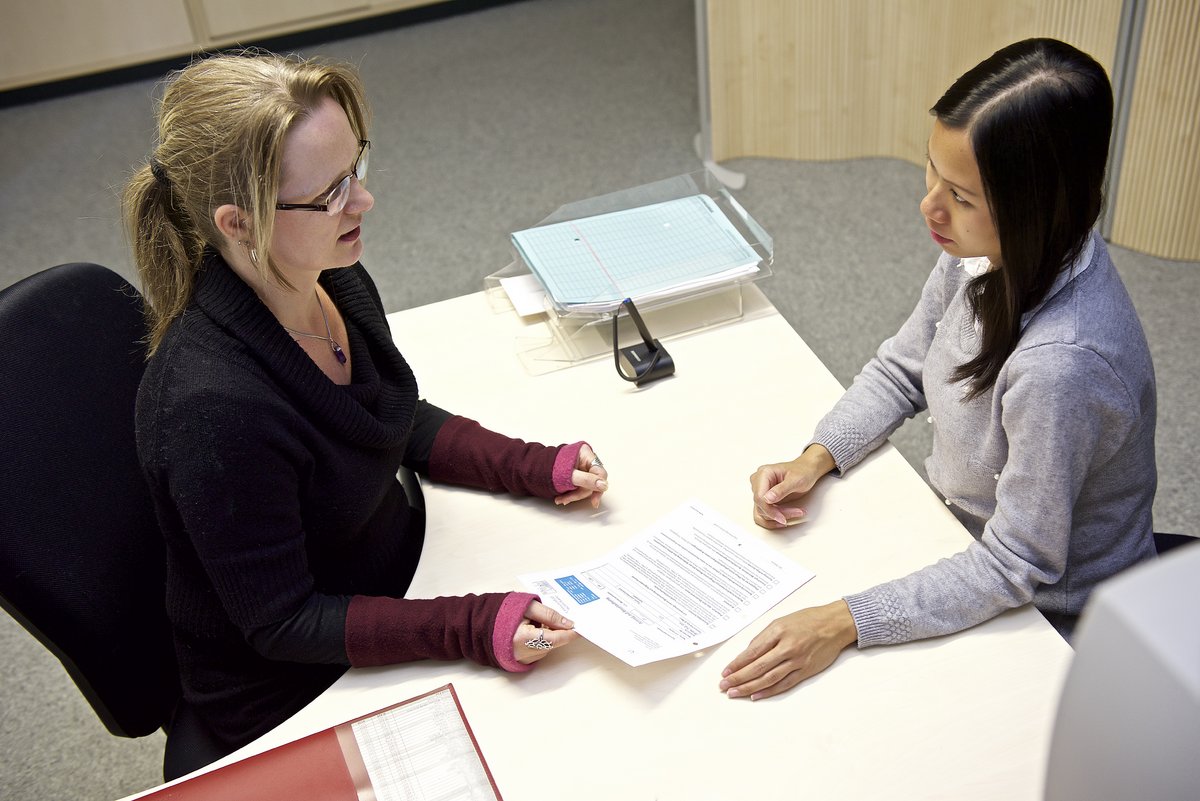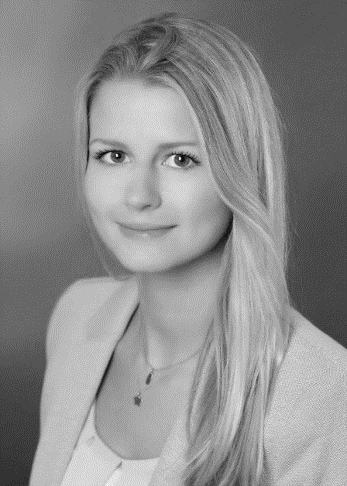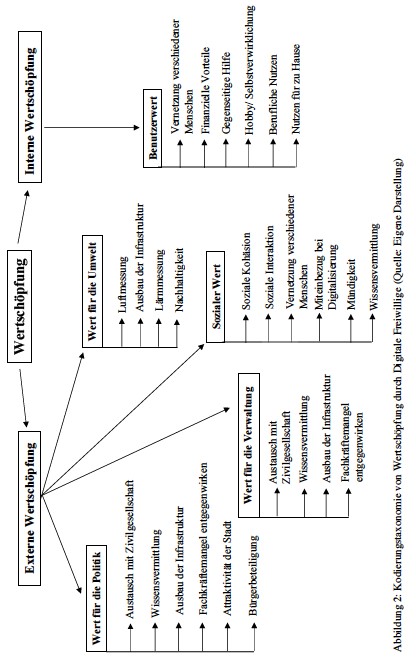
Added value by Digital Volunteers using the case study of the "Verschwörhaus Ulm"
Pauline Klanke
Abstract
New types of cooperative approaches that address persistent urban problems such as adaptation to climate change, digitization and urban inequalities are increasingly being tested by politicians, administrations and civil society. Existing systems, however, have difficulties in responding to new demands and needs, while at the same time involving civil society. This is followed by the "Verschwörhaus Ulm" (VH), which deals with digital topics in an urban context. By involving various stakeholders from civil society, the VH aims to provide a place for innovation to meet current challenges.
The aim of this research contribution is to determine the value that the cooperation of Digital Volunteers brings with it. It also aims to identify to which target group the created value is directed. Digital Volunteers are citizens who volunteer in the "Verschwörhaus Ulm". The commitment focuses on areas created by new technologies such as the use of a 3D-printer or innovative nitrogen measuring devices (Dunleavy, 2006). Through literature research and interviews with Digital Volunteers of the “Verschwörhaus Ulm” emerged five values which resulted from frequently mentioned issues of the respondents. The interviewees most often mentioned promoting networking among various groups from civil society, politics and business. Networking was rated as positive by all respondents and is seen as an important basis in the literature on value creation in the public sector (Greve, 2015). Mutual help is another key outcome of the survey, which has also been described as an important value - created by the work of the volunteers in the VH.
Context
The Verschwörhaus in Ulm serves as a link between the administration and civil society and offers the latter the opportunity to get involved. In addition, the integration and promotion of digital volunteering is an important part of the VH (Geiger, 2016). In this way, Digital Volunteers as participants in the Verschwörhaus and representatives of civil society are given the opportunity to organize themselves in a digital way and to create a value that, in turn, targets a wide variety of audience. This value may also be carried in the administration. Accordingly, this new form of cooperation in an innovation laboratory, such as the VH, may be relevant for a better exchange between civil society and administration. On the basis of the research literature, the “Verschwörhaus Ulm“ house cannot be clearly classified into one form of organization, but comes closest to a living lab, since it concentrates on user-centered co-creation and tackling contemporary challenges in social contexts (Schuurman & Tõnurist, 2017).
Method
In order to find out more about the projects and cooperation of the Digital Volunteers, participants of the “Verschwörhaus Ulm” were interviewed in semi-structured interviews (Yin, 2009). In this way, existing research on value creation through collaboration could be combined with new findings from practice. The aim of the interviews was to identify the values created through the cooperation of Digital Volunteers in the innovation laboratory in Ulm. In selecting the interviewees, special care was taken to ensure that the interview partners were persons who regularly volunteer at the VH and work and communicate with digital and technical instruments.
Excluded from this target group were the head of the office "Digitale Agenda" of the city of Ulm and the head of the "Verschwörhaus Ulm". Rather, these interviews should provide valuable contextual information about the work of the VH and to reveal the added value from an administrative perspective. The evaluation of the data was carried out with a qualitative content analysis (Kuckartz, 2014).
Results
Based on the interview data, it was possible to establish that direct and indirect value added was involved. This means that acting in the “Verschwörhaus Ulm” often created a direct, personal value for a person herself. Sometimes, however, a value was generated through cooperation that influences future projects and thus arises rather indirectly. The data analysis has also shown that networking and mutual help are the most mentioned types of added value that Digital Volunteers generate through their work. The following results could be identified:
Value for politics
In the interviews, statements were frequently made which focused on the attractiveness of the city. The interviewees stated that, on the one hand, the VH made the city more attractive for the citizens through bike-sharing systems, for example. On the other hand, the attractiveness of the city of Ulm to the outside world has also increased, as the “Verschwörhaus Ulm” in its form is often described as unique throughout Germany.
In addition, the projects of the digital volunteers are used to impart knowledge, with the use of this information ministries or political institutions are informed about technological ideas or innovations, which was also regarded as a value for politics.
Value for administration
The most important value for the administration was found in the exchange with civil society. Through the lively exchange, joint fields of action between administration and participants in the innovation laboratory can be identified.
In addition, the expansion of the infrastructure also represents a value for the administration in Ulm, which was expressed in the interviews. For example, the planning and implementation of the Bike-Sharing System was started by working in the “Verschwörhaus Ulm”.
Social value
The networking of different people that takes place in the “Verschwörhaus Ulm” was frequently mentioned. With networking, the promotion of interaction between people with different educational backgrounds, age and gender in the Verschwörhaus has been particularly emphasized by many interview partners.
Furthermore, many Digital Volunteers have mentioned that social cohesion is growing stronger through the work of Digital Volunteers. The work has created a network that undertakes activities that go beyond the Verschwörhaus.
Value for the environment
The air measurement, which is regarded as urgently necessary in the city of Ulm by the interview participants, was considered as a value for the environment by the co-production of the volunteers. In cooperation with local companies, for example, the nitrogen content in the air was measured, which in turn can serve as recommendations for cleaner air.
Another result is the sustainability subcategory. The focus on sustainable products and events in the Verschwörhaus was mentioned by the Digital Volunteers and is intended to stimulate environmental awareness in the city in general, among businesses and civil society
Personal value for those working in the “Verschwörhaus Ulm” (user value)
The mutual help among each other in the VH was particularly emphasized. The helpful atmosphere, the support for mutual projects or the help with technical test elements are an essential aspect, which is called personal enrichment for the participants.
The networking of different people also represents an essential value for the interviewees themselves. Here, the value refers above all to the different knowledge background of the participants in the “Verschwörhaus Ulm”.
In the following figure 1 (coding taxonomy), all identified types of added value are summarized.
Theoretical & practical implications
The types of added value identified and the beneficiaries of the added value provide realistic insights into the outcomes to be expected when setting up a context such as the “Verschwörhaus Ulm“. Furthermore, the terminologies (see Figure 1) provide the basis for future exploratory and empirical research.
The possibility of mastering technological and social challenges in the "Verschwörhaus Ulm” by networking and involving people from different backgrounds can be seen as a practical implication. Public services are co-designed and provided by the citizens. The VH creates the possibility of reaching and involving a wide variety of actors as if this were the sole responsibility of the administration.
The statements of the interviewees offer in many respects an insight into the manifold fields of action of Digital Volunteers, who create value for the city of Ulm, its administration, for themselves, the environment and for social areas. The analytically proven findings can reveal factors that need to be considered when promoting a collaborative climate. They also have an impact on leadership and engagement styles by showing which attitudes foster a co-productive climate and which techniques encourage collaboration among Digital Volunteers.
Key points
The results show that co-production between civil society, administration and politics generates a diversity of values from which all sides benefit. The interviews with the Digital Volunteers showed that the VH is a place that connects different people in the city of Ulm in terms of age, educational background and knowledge level.
The VH also creates a place where mutual help plays an important role. One of the main barriers to voluntary engagement is the behavior to engage only in one's own networks without getting to know new topics and actors (Puerari et al., 2018). This barrier could be overcome by the networking of different people shown in this work.
Finally, the work confirmed that digital volunteers play a significant role in generating values through co-production in administration and civil society.
Files

Pauline Klanke:
Pauline Klanke has completed her bachelor's degree in political and administrative sciences in Constance and has already been interested in current challenges and opportunities of digitization during her studies. Her research interest in the bachelor's program lay in organizational structures that promote active participation and exchange between civil society, politics and administration. Pauline Klanke started the Master of Politics & Technology at the Technical University of Munich in October 2019. There, she conducts research on artificial intelligence, mobility & traffic as well as its effects on society in the digital transformation process.

